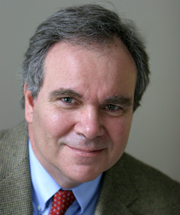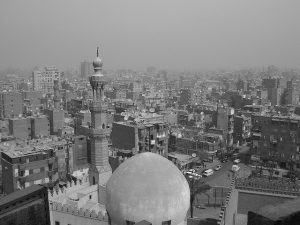Environmental law has proven to be quite dynamic in the Middle East. Some countries have made great strides toward protecting resources and preventing pollution. Others have done little to tackle environmental problems head on due to competing interests or public funding shortfalls. Although the majority of countries in the Middle East are Arab and Muslim, each has a different approach to its regulatory system. Vermont Law School, recognizing the complex issues surrounding environmental law in the region, recently launched the Middle East Environmental Law Project (MEEL). We caught up with John Echeverria, Director of Vermont Law School’s Environmental Law Center. He explains why environmental law is important in the region, and what MEEL is doing to advance it.
Green Prophet’s Joshua: What was the impetus to develop the MEEL project?
Professor John Echeverria: People around the world hear a great deal about the Middle East region, but they know little about the magnificent natural resources in the region , apart from oil and natural gas, or the serious environmental problems the region faces.
The MEEL project, initiated by Vermont Law School LLM student Seyed Mohammad Hosseini, is designed to help fill this gap by educating the media, legal scholars, policy makers, and the general public about the overlooked environmental challenges in this part of the world. In addition, the MEEL initiative seeks to promote the development of environmental law in the region. The goal is to reach out to national, regional and international organizations in the field, especially educational centers and institutions, to promote the importance of environmental law not only for the sake of protecting the environment itself, but as the necessary foundation for sustainable economic development.
Joshua: What does the MEEL project hope to accomplish?
Professor Echeverria: The MEEL project hopes to serve as an educational resource for people in the Middle East region and around the world who are interested in the environmental laws and regulations of the region. Ultimately, the hope is that it will serve as a spring board for the development of environmental law in individual countries in the region and for multilateral cooperation on environmental issues across the region.
Joshua: Which countries does the project focus on and how were they chosen?
Professor Echeverria: Although the Middle East region has been defined in different ways for different purposes, the MEEL initiative seeks to include all of the countries in the traditional definition of the Middle East region. Some North African countries will also be included. The MEEL website is a work in progress and not all of the countries in the region have been included to date.
Joshua: Have you found that these countries have disparate or similar environmental laws and/or enforcement regimes?
Professor Echeverria: Since the MEEL project is in the early stages of development, it is difficult to offer a definitive response to this question. However, because Islam is the major religion in the region’s countries, it stands to reason that there will be some similarities among many countries in their approaches to legal protection for the environment. Needless to say, there are also many differences between the countries in the region, reflecting the different economic and political situation in each country, as well as other factors.
Joshua: What factors do you think inhibit these countries from establishing effective environmental laws?
Professor Echeverria: Some Middle Eastern countries have very advanced environmental laws which are very effective. However, some developing countries in the region are pursuing economic development priorities that are sometimes perceived to be in conflict with environmental protection. Also, the political structure of any particular country plays an important role in determining the character of its environmental laws and regulations. It is clear that environmental officials do not always possess sufficient authority and resources to carry out their missions.
Joshua: What have you discovered about environmental law in the Middle East through this project that gives you hope?
Professor Echeverria: Given the nature of the environmental problems facing the region, there is a huge potential for cooperation among the different countries in the region, as well as universities and other educational institutions, to advance the cause of environmental protection. The MEEL is a resource to help foster this cooperation within the region and across the world.





Creating the Middle East Environmental Law Project is all well and good but wouldn’t it have been better if was created by a university in the Middle East rather than in Vermont? Surely there are universities there that offer law degrees that could have set up this project.